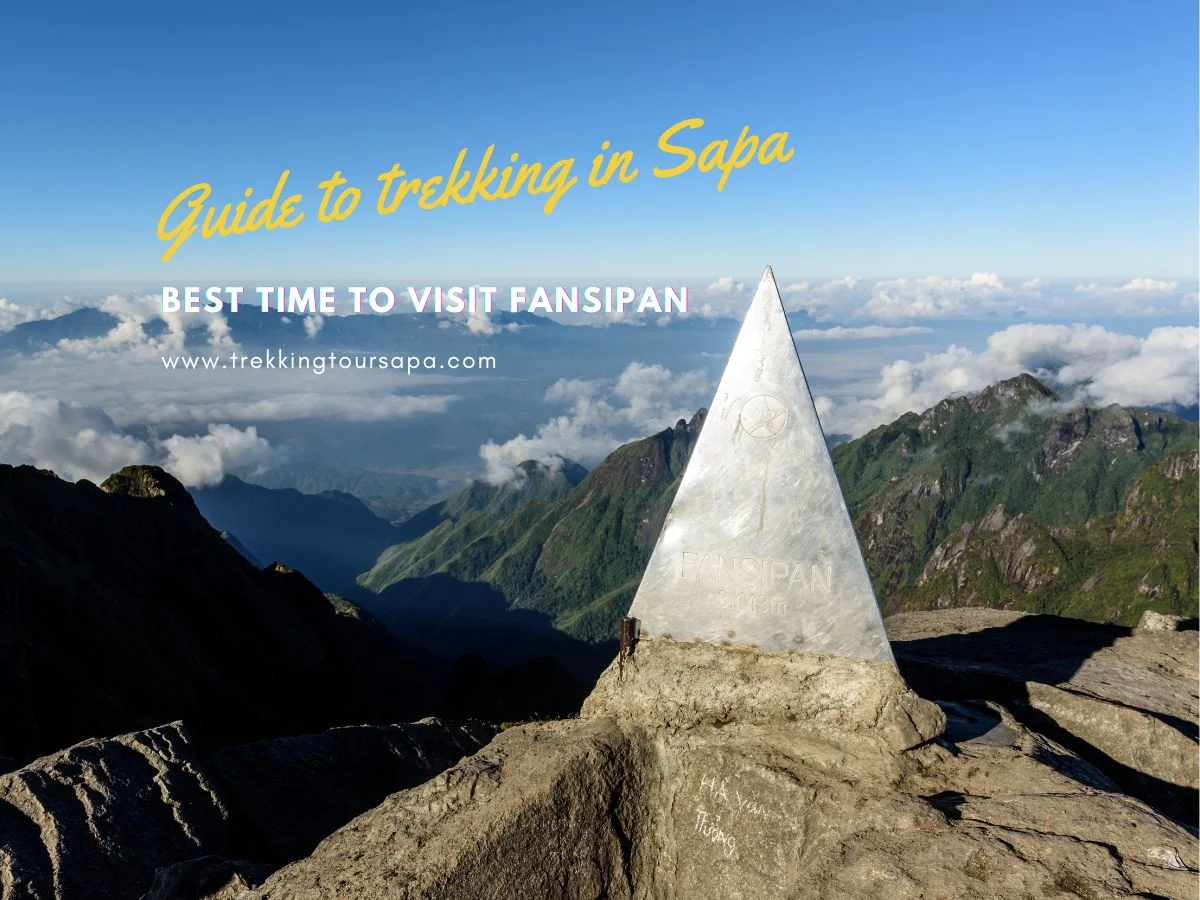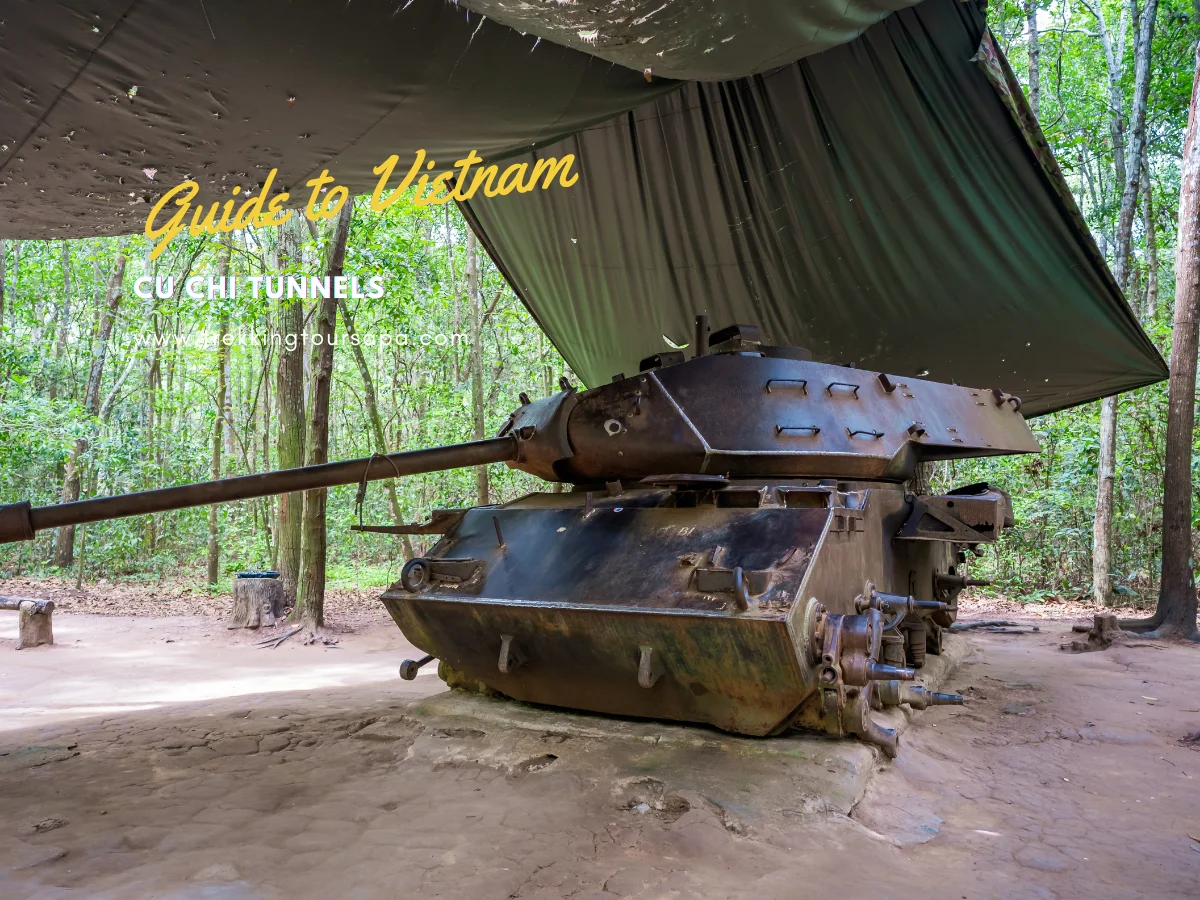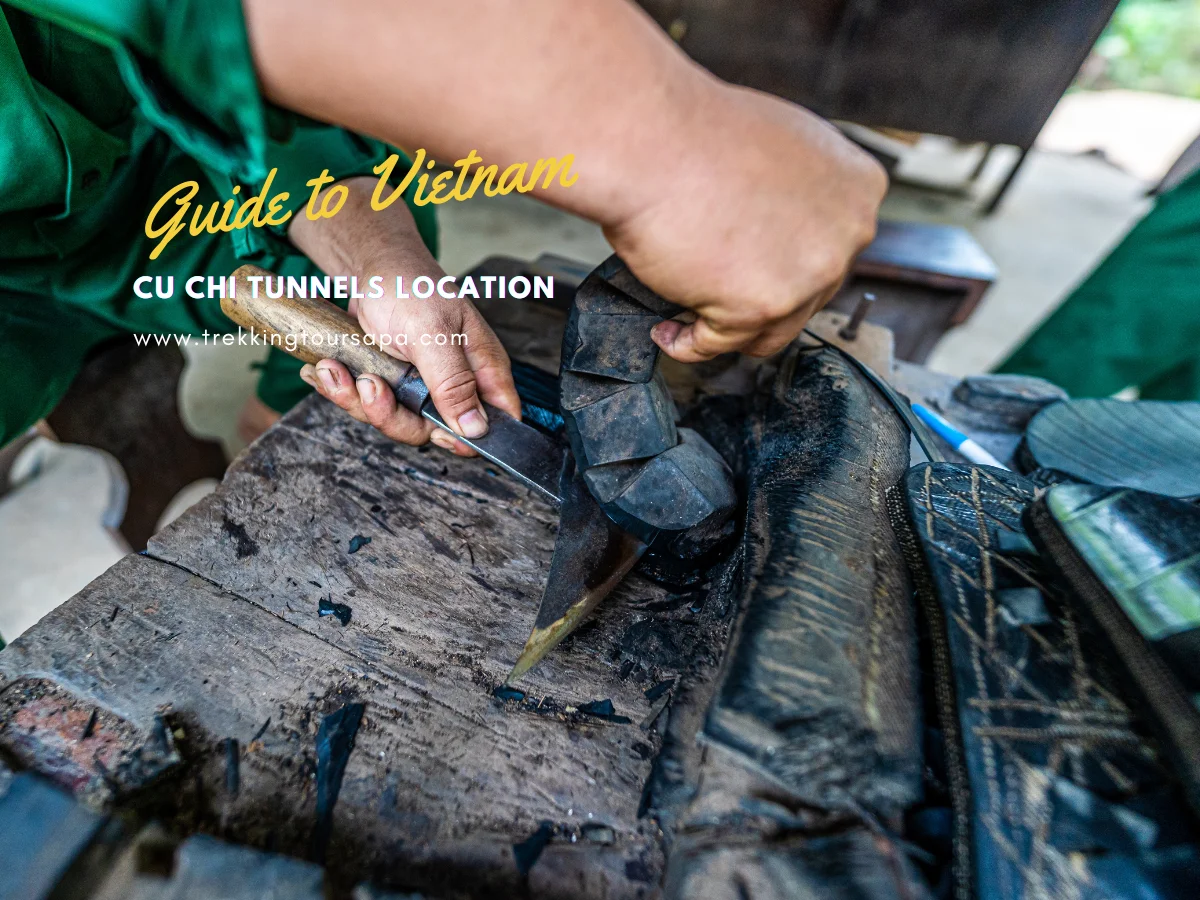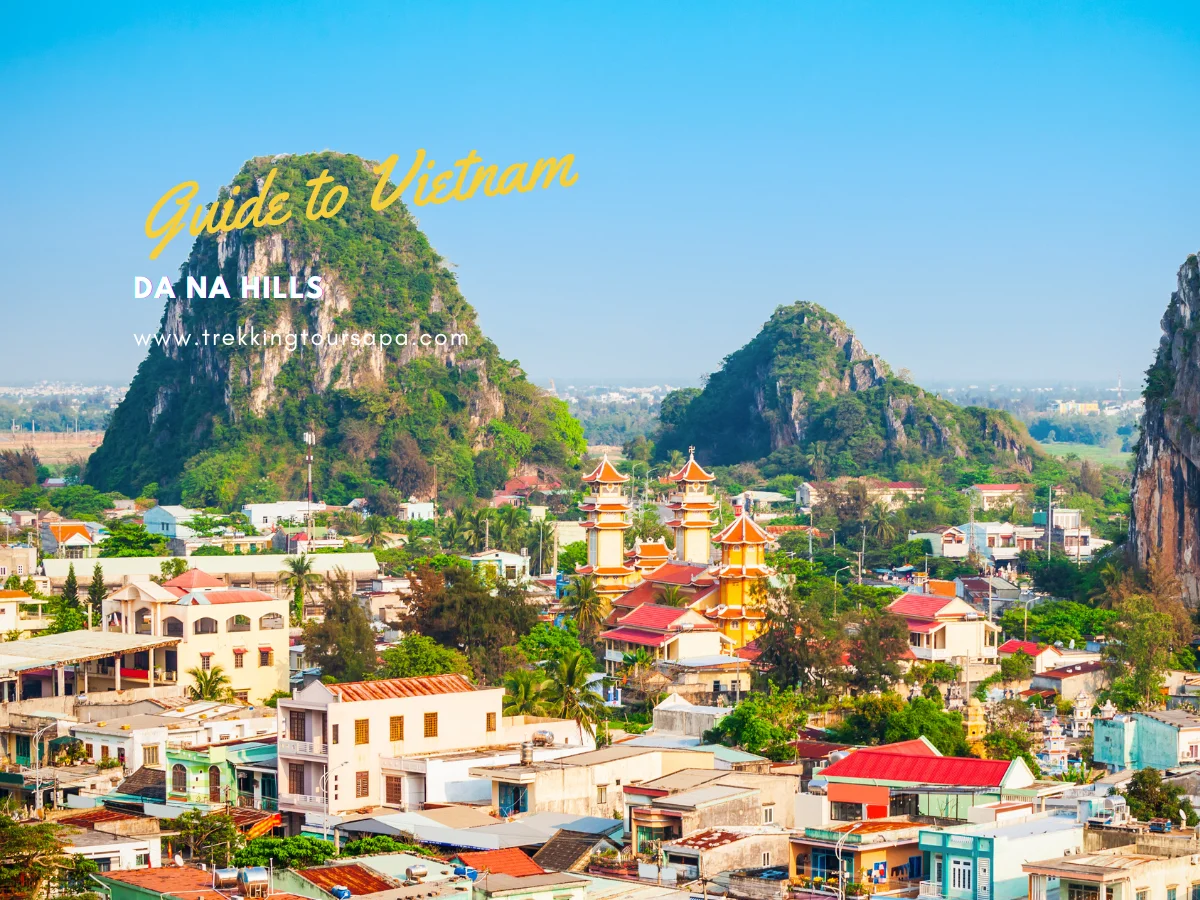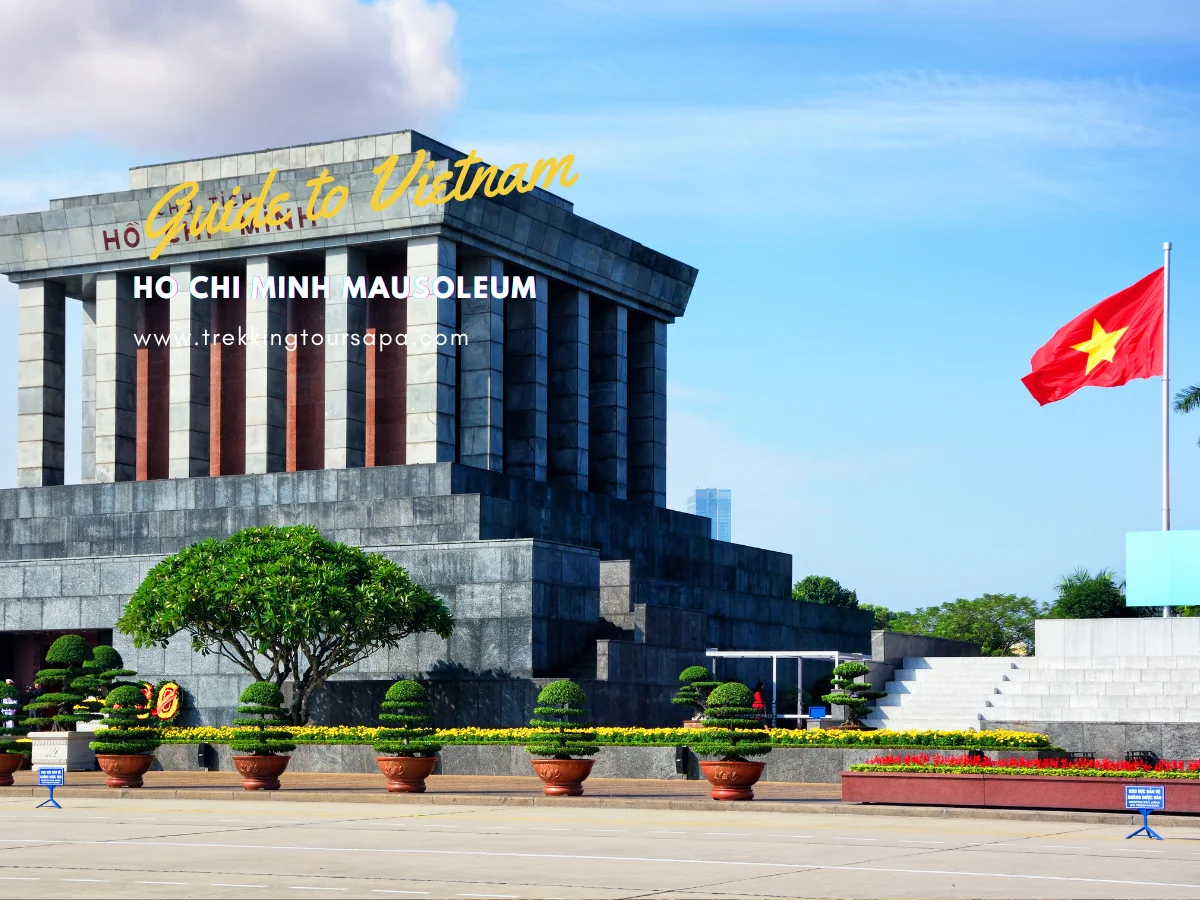If you’re an adventurous soul seeking the ultimate mountain climb, Fansipan in Vietnam is a must-visit destination. Known as the “Roof of Indochina,” Fansipan boasts a height of 3,143 meters and offers breathtaking views of its surrounding landscapes. However, before embarking on this exciting journey, it’s important to consider the best time to visit Fansipan for a comfortable and safe experience.
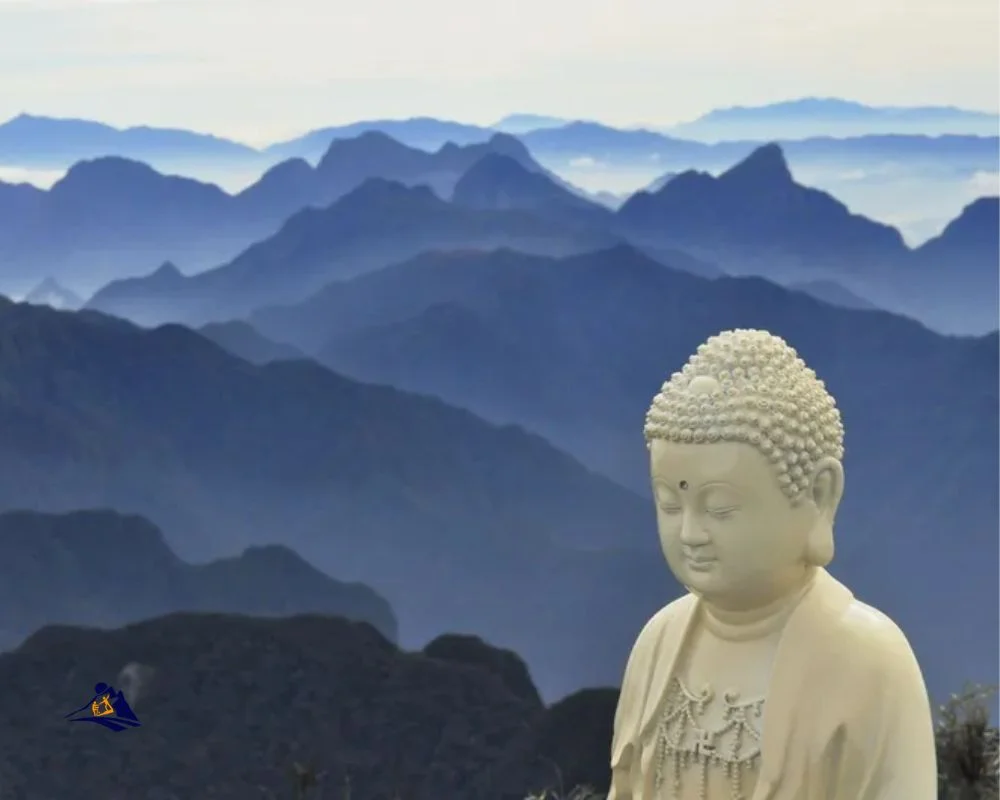
Weather plays a crucial role in determining the ideal time to hike up Fansipan. The region experiences varying climatic conditions throughout the year, which can affect your trekking experience. In this article, we’ll explore different seasons and help you determine when is the best time to visit Fansipan based on your preferences. Whether you’re looking for clear skies or lush greenery, we’ve got you covered!
Table of Contents
ToggleOverview of Fansipan Mountain
You’re in for a treat as we take you on an overview of the majestic Fansipan Mountain, where breathtaking views and exciting adventures await. Fansipan is located in Sapa, Vietnam and is known as the highest peak in Indochina, standing at 3,143 meters above sea level. It’s not only a popular destination for adventure seekers but also holds significant cultural value to the local ethnic minority groups such as Hmong and Dao.
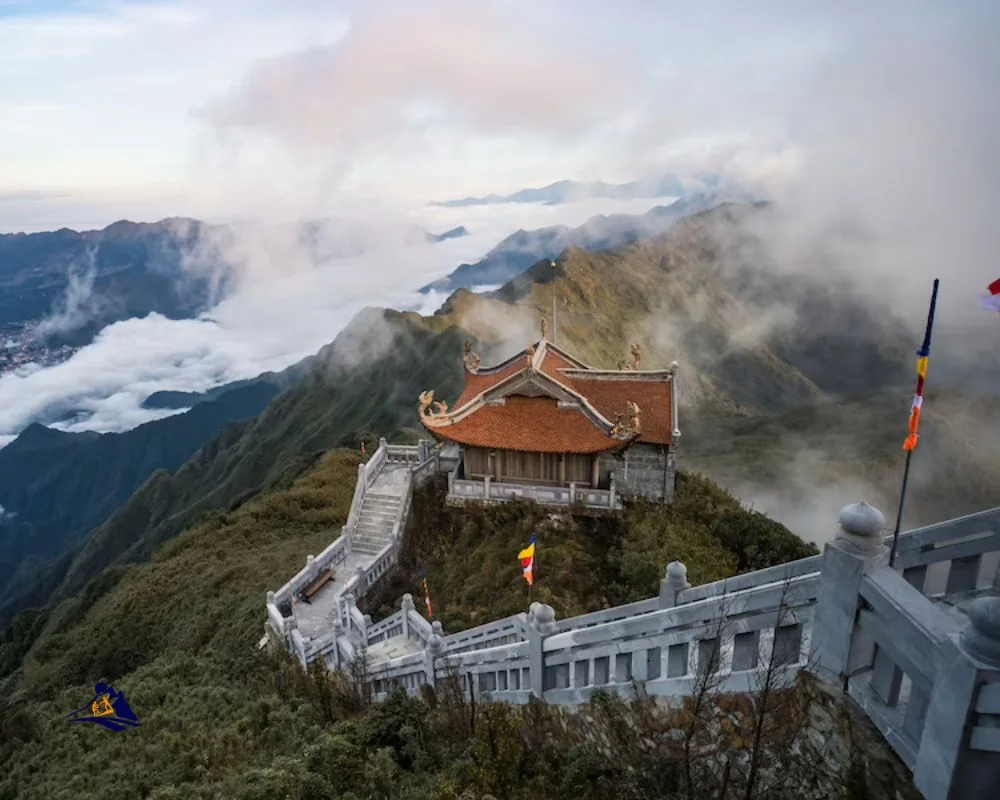
When it comes to trekking routes, there are various options available with different levels of difficulty. The most popular route is from Tram Ton Pass which takes approximately two days to complete round trip. Along the way, you’ll be amazed by stunning landscapes of rice paddies, terraced fields, and lush forests. Moreover, Fansipan has been regarded as a sacred mountain by many ethnic groups in Northern Vietnam due to its cultural significance. You can learn more about their traditions and beliefs through visiting the nearby villages or simply observing their way of life during your journey. Now let’s move on to the best time for trekking – dry season (late September to early December).
Dry Season (Late September to Early December)
Late September to early December is the absolute perfect window of opportunity for experiencing Fansipan’s dry season, where you’ll be able to bask in the glorious sunshine and revel in the breathtaking views without any pesky rain clouds getting in your way. This time of year is ideal for outdoor enthusiasts who enjoy hiking, camping, and exploring nature. Popular activities include trekking up the mountain to catch a glimpse of the sunrise from its peak or taking a cable car ride for an unforgettable view of the entire region.

When it comes to accommodation options during this season, there are plenty of choices available ranging from cozy guesthouses to luxurious resorts. You can choose to stay near the town center or opt for a more secluded location amidst lush greenery. Whatever your preference may be, you’re sure to find something that suits your needs and budget. However, keep in mind that since this is peak tourist season, it’s advisable to book well in advance to avoid any disappointments.
As much as we love the dry season at Fansipan Mountain, unfortunately it doesn’t last forever. The subsequent section will give you an insight into what you can expect during rainy season (May to September).
Rainy Season (May to September)
If you’re planning a trip to Fansipan during the rainy season (May to September), get ready for an immersive experience in nature. The lush vegetation and blooming flowers will be a sight to behold, offering plenty of opportunities for photography and relaxation. Keep an eye out for wildlife as well, but watch your step on the wet and slippery terrain.
Sapa 1 Day Tours
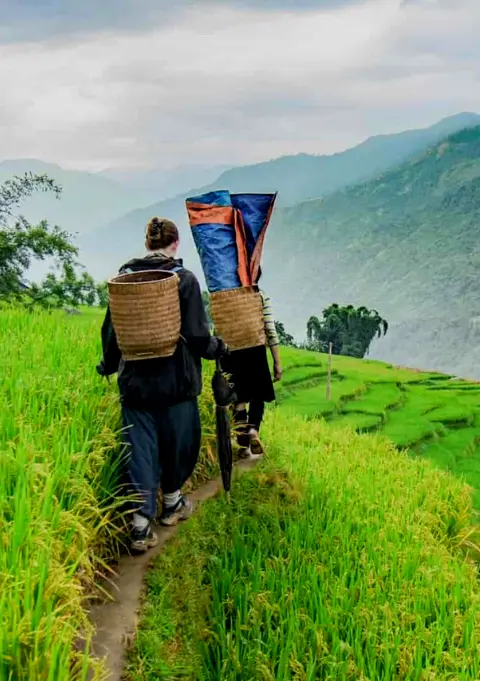
- 1 day experience
- Moderate to challenging
- Cultural immersion & active adventure
- Rice fields, valleys & villages
- Private tours
- Vegan-friendly
Sapa 2 Day Tours
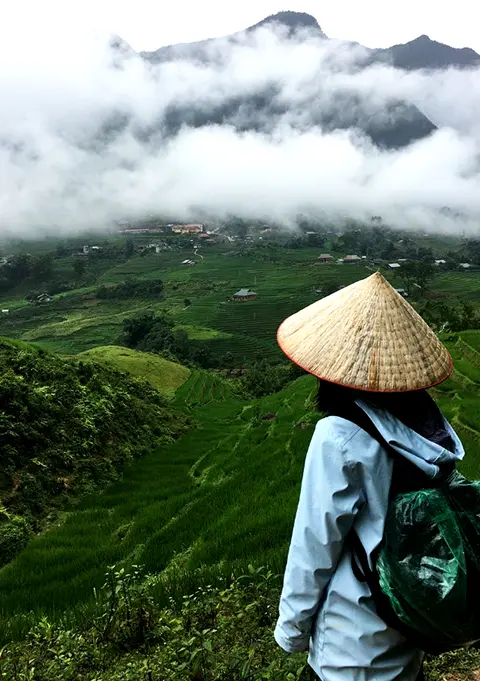
- 2 days 1 night experience
- Moderate to challenging
- Cultural immersion & active adventure
- Mountains, valleys, rice fields and villages
- Private tours
- Vegan-friendly
Sapa 3 Day Tours
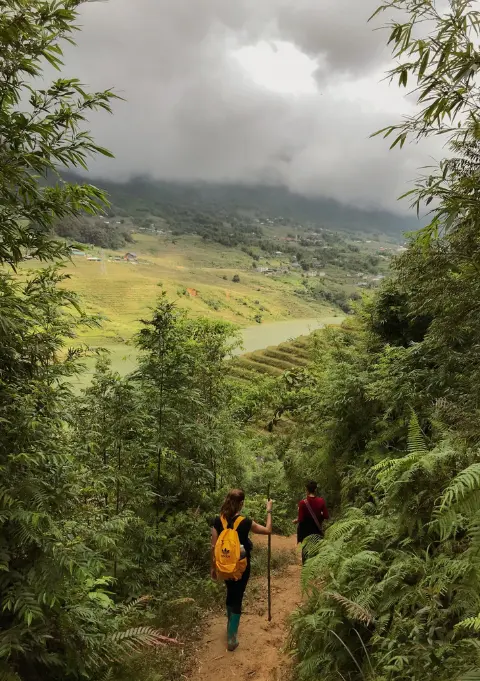
- 3 days 2 night experience
- Moderate to challenging
- Cultural immersion & active adventure
- Mountains, valley, rice fields & villages
- Private tours
- Vegan-friendly
Sapa 4 Day Tours
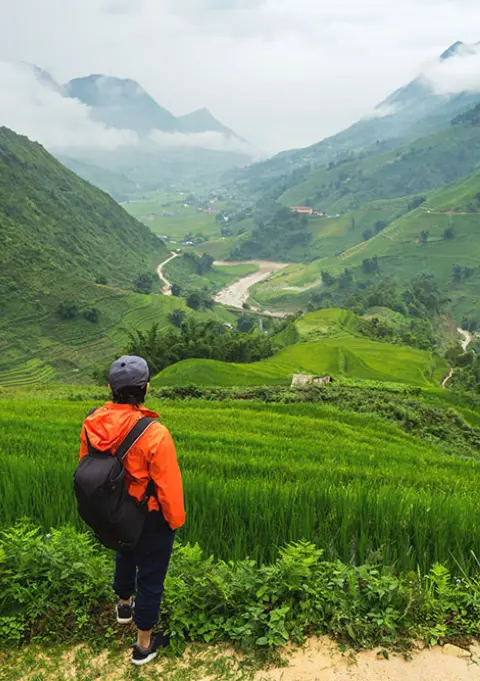
- 4 days 3 night experience
- Moderate to challenging
- Cultural immersion & active adventure
- Mountains, valleys, rice fields & villages
- Private tours – Less Touristic
- Vegan-friendly
Lush Vegetation and Blooming Flowers
The mountain’s verdant surroundings and colorful blossoms make for a breathtaking sight whenever you choose to explore Fansipan. During the months of October to April, the misty air clears up, revealing an explosion of vibrant colors that cover the entire valley. Here are four reasons why this season is perfect for nature enthusiasts like you:
- Lush Vegetation Photography: The lush greenery provides a stunning backdrop to capture moments on your camera. With every step, you’ll find yourself surrounded by a sea of emerald hues as you trek through the forest trails.
- Blooming Flowers Trekking: It’s hard not to be impressed by the vast array of blooming flowers along the way. You’ll witness pink and blue hydrangeas, white rhododendrons, and yellow sunflowers in full bloom during this time.
- Comfortable Weather: As compared to other seasons, temperatures during this period are pleasant enough for outdoor activities without being too hot or cold.
- Lesser Crowds: Since most tourists avoid visiting Fansipan during this season due to its previous rainy reputation, it means fewer crowds on your treks.
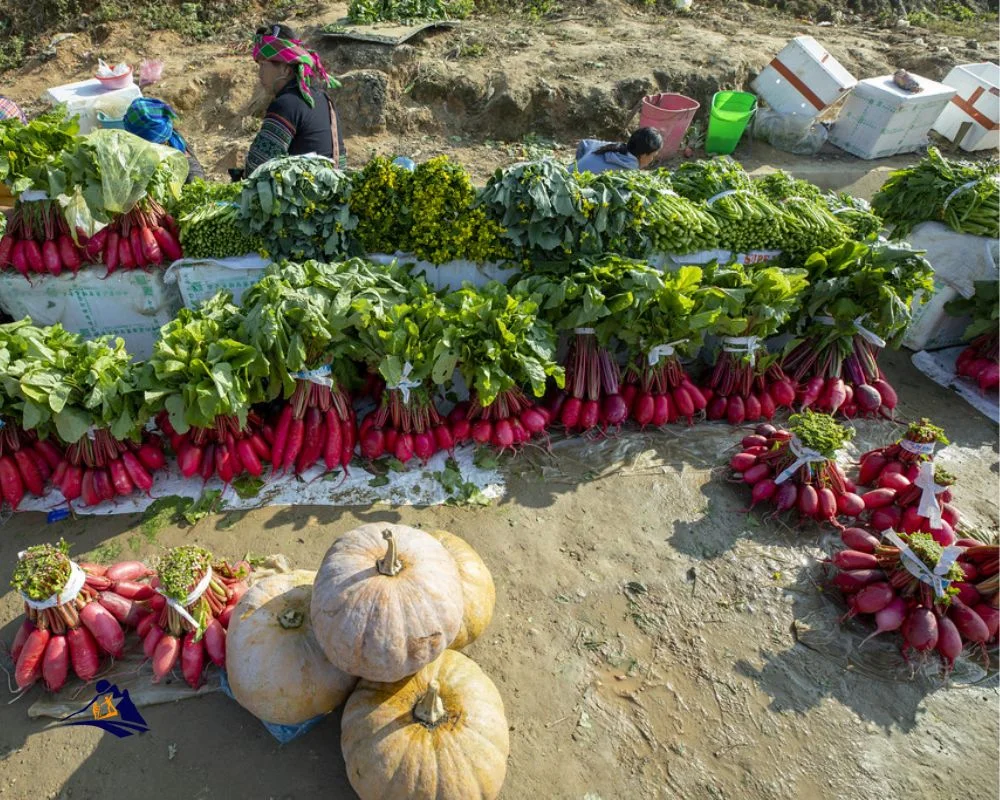
As you bid adieu to the lush vegetation and blooming flowers at Fansipan, get ready for another exciting opportunity – wildlife viewing!
Wildlife Viewing Opportunities
Get ready to immerse yourself in the natural wonders of Fansipan by exploring its diverse wildlife, from majestic birds soaring through the skies to elusive animals hiding amongst the trees. Fansipan is home to a variety of species, including rare primates like black gibbons and langurs, along with clouded leopards and sun bears. As you traverse through the lush forests and steep mountainsides, keep your eyes peeled for these incredible creatures that call Fansipan their home.
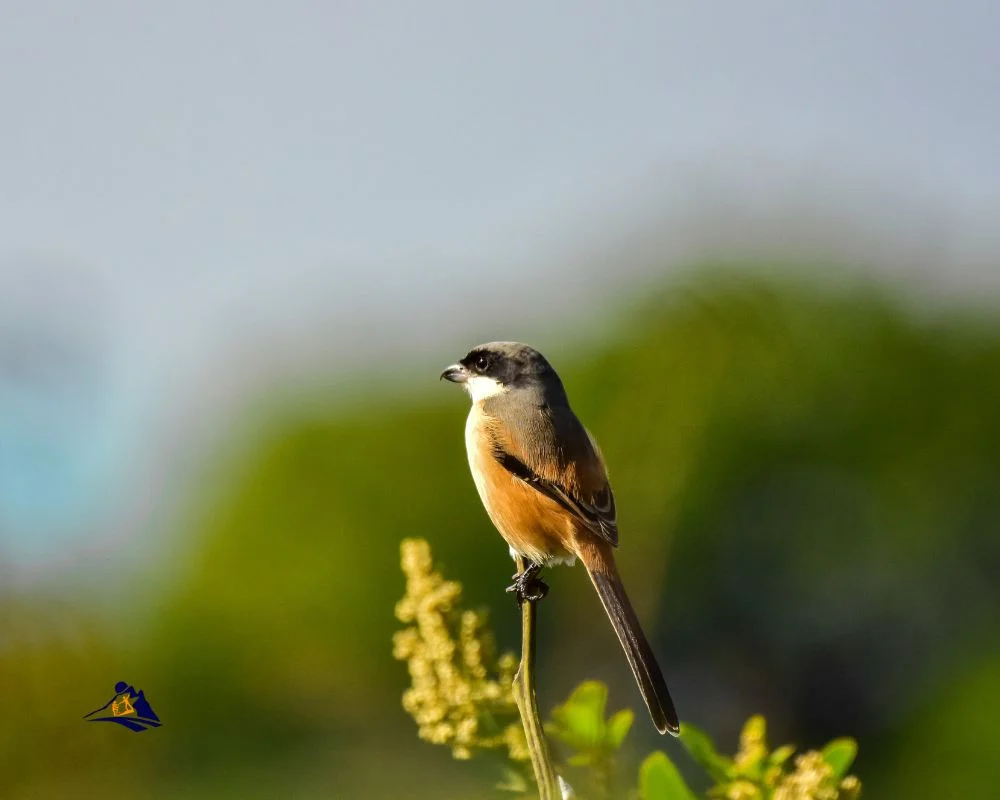
While it’s important to appreciate and admire the wildlife in Fansipan, it’s also crucial to understand the impact we have on their habitat. Wildlife conservation is a critical aspect of responsible tourism in this area, as human activity can have ecological consequences for these animals. By being mindful of our actions and supporting sustainable tourism practices, we can help preserve this precious ecosystem for generations to come. Now let’s talk about navigating the wet and slippery terrain of Fansipan without slipping up!
Wet and Slippery Terrain
As you venture deeper into Fansipan, you’ll notice that the terrain can get quite wet and slippery. The rainy season lasts from May to September, which means the trails are often muddy and treacherous. But don’t let this discourage you! This is a great opportunity to test your hiking skills and come prepared with the best footwear and hiking equipment.
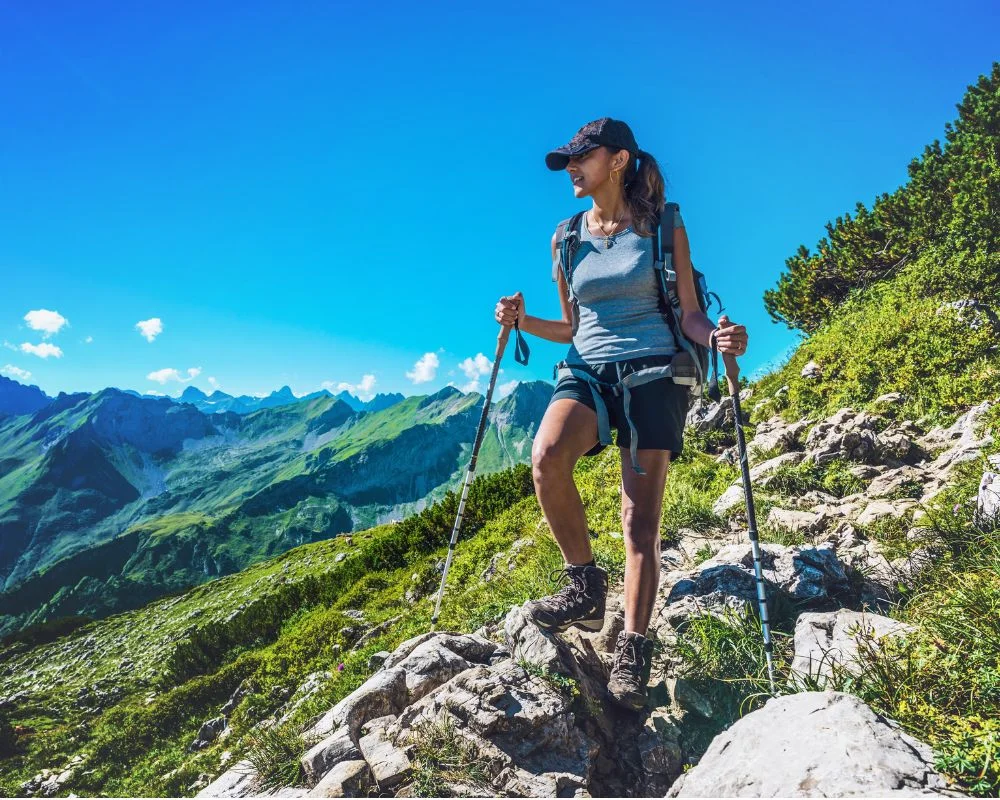
When it comes to footwear, make sure to choose shoes with good traction and ankle support. Waterproof boots can also be a lifesaver when crossing streams or walking through puddles. As for equipment, bring along trekking poles to help maintain your balance on steep slopes or slippery surfaces. Don’t forget rain gear as well – unexpected downpours can happen at any time!
As we move towards the spring season (February to April), the weather becomes milder and drier, making it an ideal time for trekking in Fansipan. But before we get there, let’s first take a look at another important factor that affects your experience in this mountain paradise: altitude sickness.
Spring Season (February to April)
If you’re planning a trip to Fansipan during the Spring Season (February to April), get ready for some mild weather that’s perfect for outdoor activities. This time of year is great for photography, with beautiful blossoms and lush greenery everywhere you look. However, keep in mind that this season may not be ideal for hiking due to occasional rainy days and slippery trails.
Sapa 1 Day Tours

- 1 day experience
- Moderate to challenging
- Cultural immersion & active adventure
- Rice fields, valleys & villages
- Private tours
- Vegan-friendly
Sapa 2 Day Tours

- 2 days 1 night experience
- Moderate to challenging
- Cultural immersion & active adventure
- Mountains, valleys, rice fields and villages
- Private tours
- Vegan-friendly
Sapa 3 Day Tours

- 3 days 2 night experience
- Moderate to challenging
- Cultural immersion & active adventure
- Mountains, valley, rice fields & villages
- Private tours
- Vegan-friendly
Sapa 4 Day Tours

- 4 days 3 night experience
- Moderate to challenging
- Cultural immersion & active adventure
- Mountains, valleys, rice fields & villages
- Private tours – Less Touristic
- Vegan-friendly
Mild Weather
You’ll appreciate the mild weather when you trek up Fansipan, making it easier to enjoy the stunning scenery. The temperature during this time is cool and comfortable, with an average high of 23°C and low of 13°C. You won’t have to worry about extreme heat or cold, which can affect your outdoor activities negatively. Here are some tips on what clothing to bring:
- Layering is key as temperatures can fluctuate throughout the day.
- Bring a waterproof jacket in case of rain showers.
- Comfortable hiking shoes with good traction are a must.
- Don’t forget a hat and sunglasses for sun protection.
- Pack light but warm clothes for evenings.
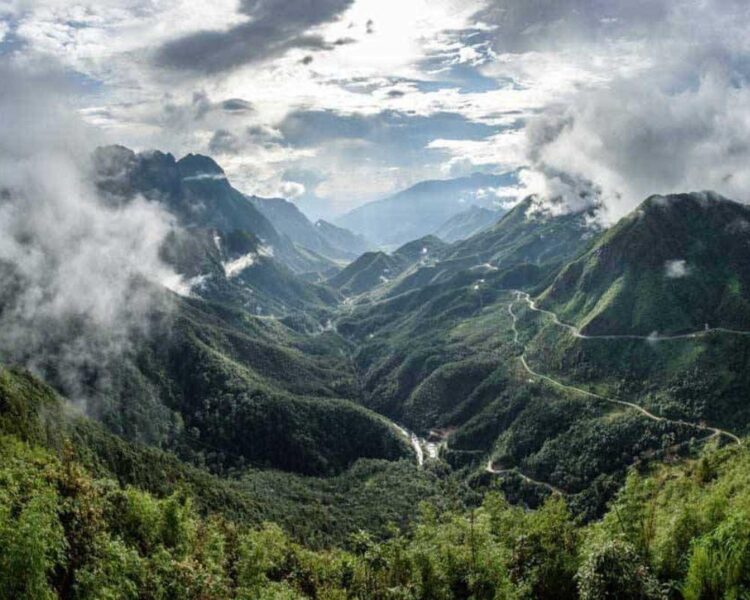
With mild weather conditions and suitable clothing, you can fully immerse yourself in Fansipan’s natural beauty without any discomfort. Plus, this season offers excellent opportunities for photography!
Great for Photography
You’re in luck because the best time to visit Fansipan for photography is during the dry season, which typically falls between October and December. The clear skies and mild temperatures provide the perfect backdrop for capturing stunning images of the majestic mountain and its surrounding landscape. Whether you’re an amateur photographer or a seasoned pro, you’ll find plenty of opportunities to snap some amazing shots.
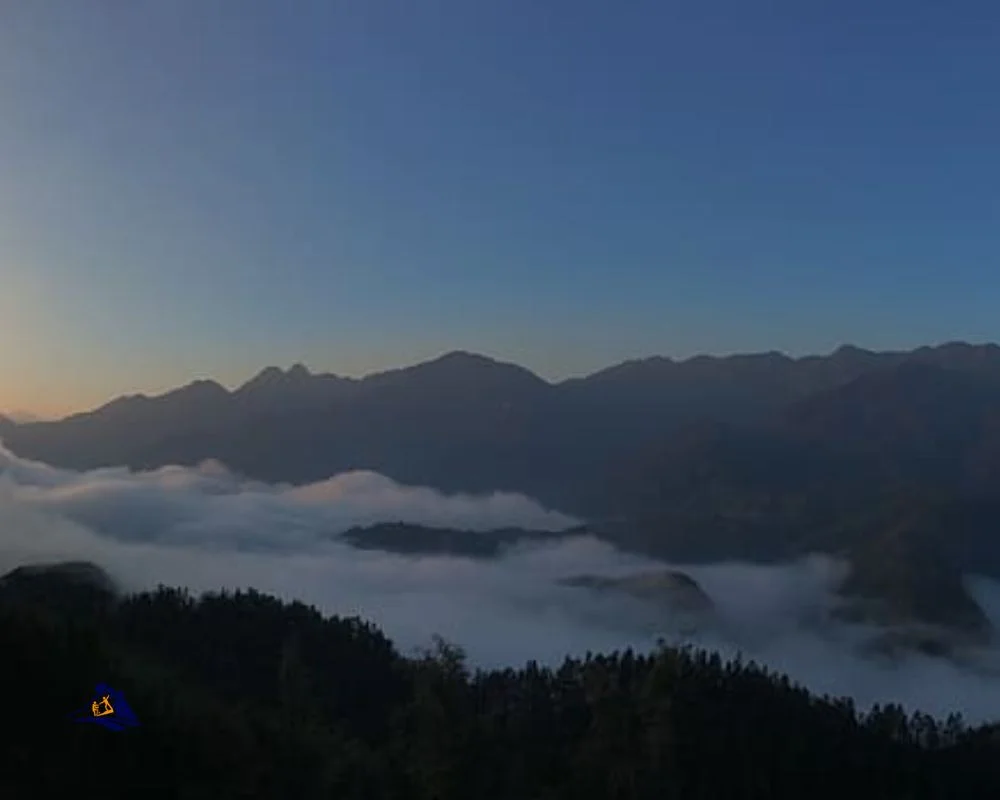
To make the most out of your visit, be sure to pack your camera gear with a variety of lenses and consider taking a tripod for stability. Photography tips aside, it’s also important to think about finding the best angles when shooting from different viewpoints along your trek up Fansipan. From panoramic views at the peak to intimate close-ups of flora and fauna along the way, there’s no shortage of incredible photo ops waiting for you on this adventure.
However, keep in mind that while Fansipan may be great for photography during this period, it’s not ideal for hiking due to potential mudslides caused by heavy rainfall outside of these months. So make sure to plan accordingly before embarking on your journey up Vietnam’s highest peak.
Not Ideal for Hiking
Unfortunately, hiking Fansipan may be risky outside of the dry season due to potential mudslides caused by heavy rainfall. However, there are great hiking alternatives during this time such as exploring the nearby villages and rice terraces. You can also take a cable car ride to the summit for spectacular views without having to worry about safety concerns.
Sapa 1 Day Tours

- 1 day experience
- Moderate to challenging
- Cultural immersion & active adventure
- Rice fields, valleys & villages
- Private tours
- Vegan-friendly
Sapa 2 Day Tours

- 2 days 1 night experience
- Moderate to challenging
- Cultural immersion & active adventure
- Mountains, valleys, rice fields and villages
- Private tours
- Vegan-friendly
Sapa 3 Day Tours

- 3 days 2 night experience
- Moderate to challenging
- Cultural immersion & active adventure
- Mountains, valley, rice fields & villages
- Private tours
- Vegan-friendly
Sapa 4 Day Tours

- 4 days 3 night experience
- Moderate to challenging
- Cultural immersion & active adventure
- Mountains, valleys, rice fields & villages
- Private tours – Less Touristic
- Vegan-friendly
The best time for sightseeing at Fansipan is during the summer season (June to August). The weather is warm and sunny with clear skies, making it perfect for outdoor activities. So if you’re looking to hike, plan your visit accordingly and enjoy all that Fansipan has to offer during the ideal time.
Summer Season (June to August)
Ah, the scorching hot months of summer – a time when you can fry an egg on the pavement and sweat through your clothes in minutes. But don’t let that discourage you from visiting Fansipan during this season! While it may not be the ideal time for hiking, there are still plenty of reasons to make the trip.
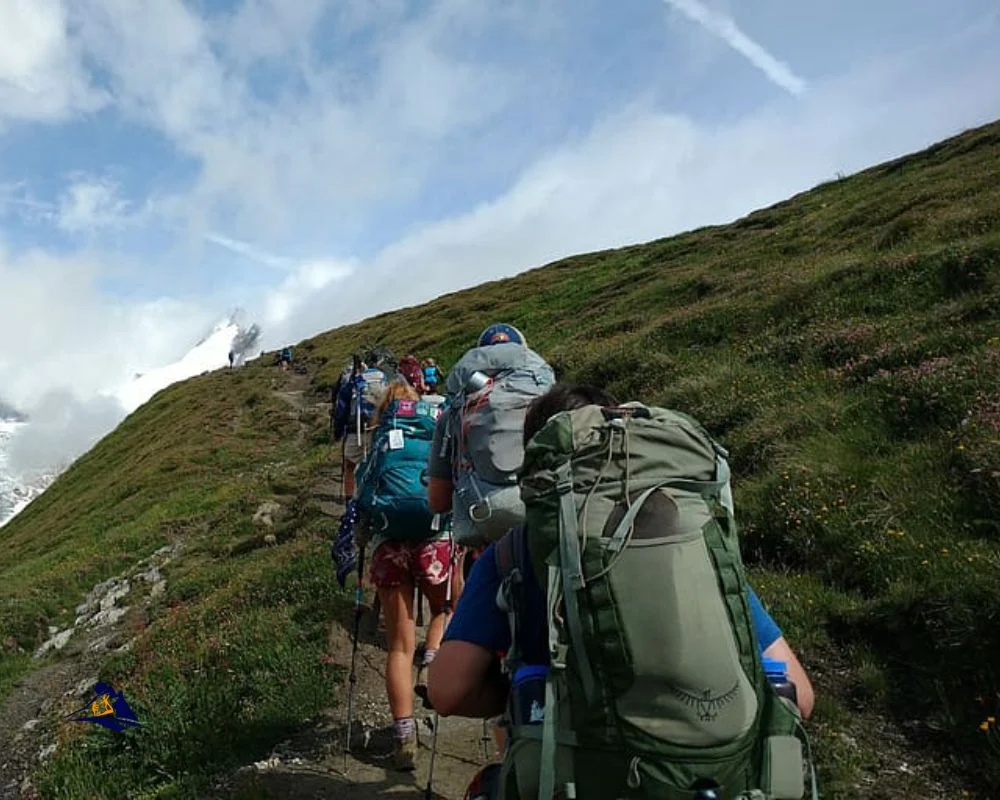
During summer, climbing challenges abound as temperatures soar and humidity increases. But if you’re up for the challenge, you’ll be rewarded with stunning panoramic views from the summit. And when it comes to accommodation options, there are plenty of comfortable and affordable choices available near Sapa town. So pack light, bring plenty of water, and get ready for a memorable adventure in Vietnam’s highest peak! As summer turns into fall (September to November), cooler temperatures start to set in and foliage begins to change color.
Fall Season (September to November)
Fall is a great season to plan your trip to Fansipan, with cooler temperatures and colorful foliage. As the weather starts to cool down, the mountain becomes less crowded than in the summer months, making it an ideal time for travelers who prefer peace and solitude. In addition, during fall festivals like the Mid-Autumn Festival or Full Moon Festival, you can experience local culture and traditions while enjoying delicious food.
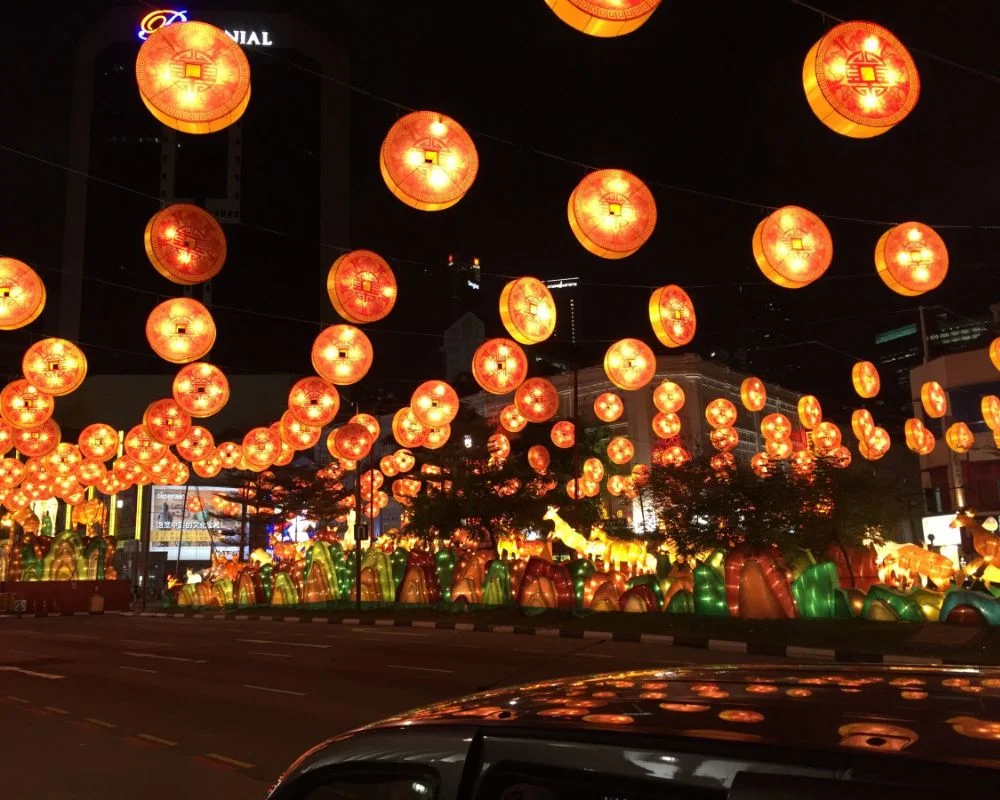
The autumn foliage in Fansipan is also another reason why fall is a fantastic time to visit. The trees on the mountain start changing color from late September until mid-November, creating a breathtaking view of reds, oranges, and yellows that contrast beautifully against the blue sky. Hiking on one of the many trails during this season will provide visitors with stunning views of nature’s beauty. However, if you’re planning a trip during this season make sure to bring warm clothes as temperatures can drop significantly at night.
As fall transitions into winter season (December to January), Fansipan experiences colder weather that brings snowfall making it even more picturesque but challenging for hikers.
Winter Season (December to January)
If you’re planning to visit Fansipan during the winter season, get ready for some exciting activities! Winter in Fansipan is a magical time, as the entire region gets covered in snow. The misty mountains and stunning valleys are transformed into a winter wonderland, making it an unforgettable experience.
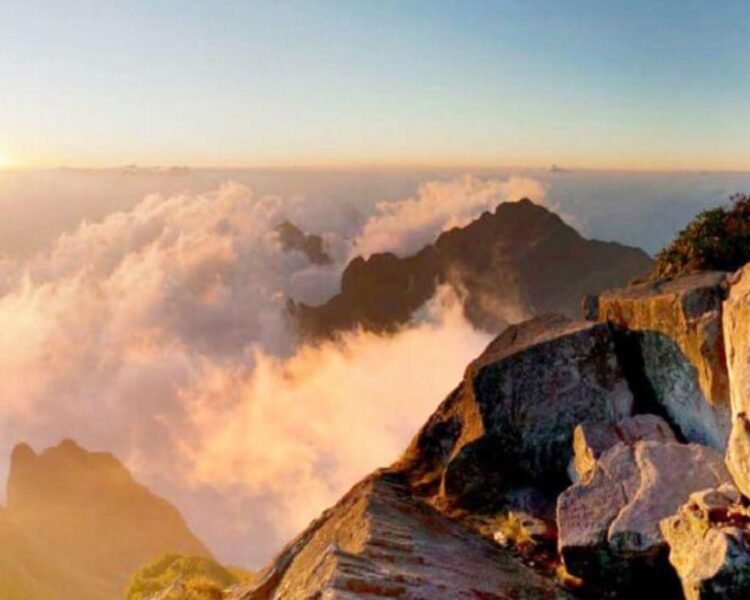
One of the most popular winter activities in Fansipan is snow trekking. During this adventure, you’ll explore the snowy terrain and witness breathtaking views of the surrounding peaks. As you walk on the snowy paths, you’ll feel like you’re walking on clouds. It’s an amazing experience that will leave you feeling rejuvenated and refreshed. So pack your warm clothes, put on your boots, and get ready for an incredible journey through the snow-covered hills of Fansipan!
Now that we’ve talked about all the wonderful things you can do during the winter season in Fansipan let’s move onto some tips for a comfortable and safe experience.
Tips for a Comfortable and Safe Experience
For a memorable and safe trip to Fansipan during the winter season, here are some useful tips to ensure your comfort and well-being. Firstly, make sure you have the essential gear for hiking in cold weather. This includes warm clothing layers, waterproof jacket and pants, insulated gloves and hat, sturdy hiking boots with good grip, and a headlamp or flashlight in case of limited visibility. It’s also important to bring enough water and snacks for energy throughout the hike.
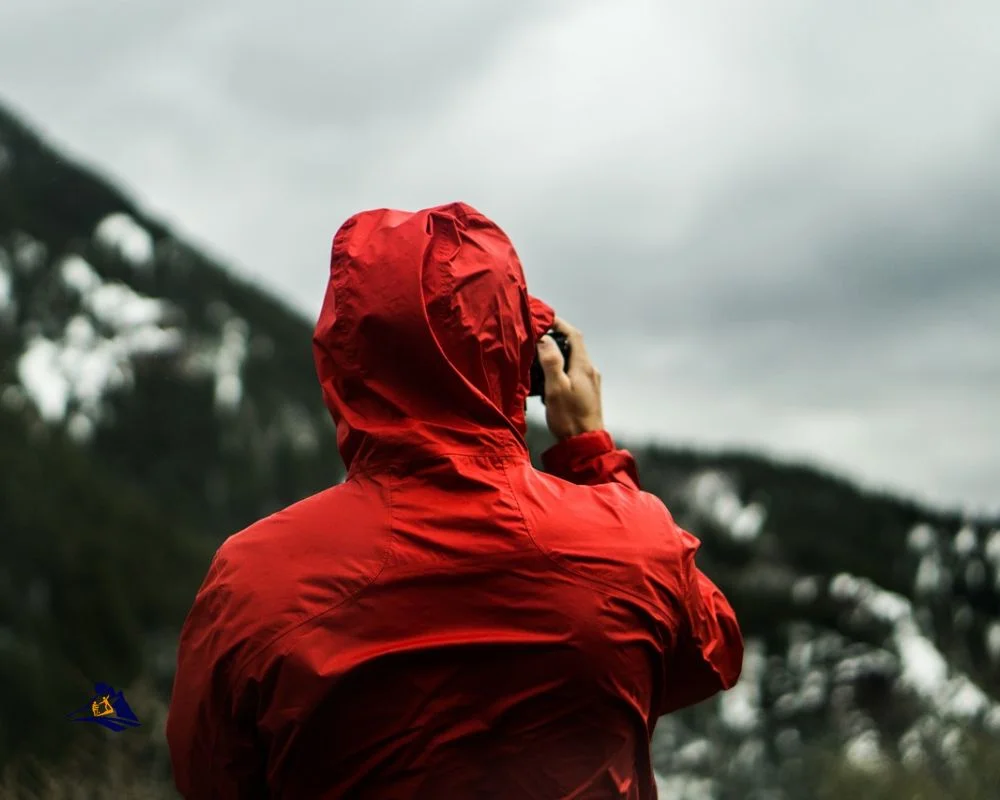
Secondly, physical preparation is key before embarking on this challenging trek. Fansipan is the highest mountain peak in Indochina with an altitude of 3,143 meters above sea level. Therefore, it’s recommended to engage in cardio exercises such as running or cycling at least 2-3 times a week prior to your trip. If possible, do some elevation training by climbing stairs or hills as well. Additionally, stretching before and after the hike can help prevent injuries and muscle soreness. By following these tips for essential gear and physical preparation, you’ll be able to fully enjoy your experience on Fansipan while staying safe and comfortable along the way.
Some additional tips to keep in mind:
- Always check weather forecasts before starting your hike
- Stay hydrated throughout the entire trek
- Bring a first aid kit containing basic medical supplies
Best Time To Visit Fansipan Frequently Asked Questions
What is the best way to get to Fansipan Mountain?
You’re about to embark on an unforgettable journey to Fansipan mountain, and the excitement is palpable. But before you set off, you need to decide on the best way to reach the summit. Will you take the cable car, soaring high above the clouds with breathtaking views of the surrounding landscape? Or will you opt for one of the trekking routes, immersing yourself in nature and pushing your limits both physically and mentally? Whatever route you choose, be prepared for a challenging yet rewarding experience that will leave you feeling invigorated and alive. The choice is yours – embrace it with open arms and let your spirit soar!
Are there any restrictions or permits required for hiking Fansipan?
Before embarking on a hike up Fansipan, it is important to note that permits are required for the trek. These permits can be obtained at the entrance of Hoang Lien National Park and are necessary for safety reasons. It is also recommended to take necessary safety measures such as wearing appropriate hiking gear, bringing enough water and snacks, and being aware of weather conditions. With all these precautions in mind, you can experience the freedom of hiking up Vietnam’s highest peak with peace of mind knowing that you have taken the necessary steps to ensure your safety.
Can I climb Fansipan alone or do I need a guide?
If you’re considering a solo climb up Fansipan, there are a few things to keep in mind. While it is certainly possible to tackle the mountain on your own, it’s important to take safety measures seriously. This means bringing appropriate gear and supplies, like sturdy hiking boots, warm clothing, and plenty of water and snacks. It’s also a good idea to let someone know your plans before you embark on your journey. While solo climbing can be an exhilarating experience that allows for complete freedom, it’s important to remember that the mountain can be unpredictable and dangerous without proper preparation and caution.
What is the average duration of a Fansipan trek?
Embarking on a Fansipan trek is an experience that will challenge you both physically and mentally. The journey to the summit is not for the faint of heart, but the reward of reaching the top is worth every step. The average duration of a Fansipan trek is typically 2-3 days, depending on your fitness level and the route you choose. The trek has an average difficulty level, which means that it requires some physical preparation beforehand, but it’s achievable for most people with determination and perseverance. It’s important to note that the best time of year to embark on this adventure is from September to November when weather conditions are favorable, making it safer and more enjoyable. So if you’re ready for a challenge and seeking freedom in nature, Fansipan should be at the top of your list!
Are there any cultural or historical landmarks to see on Fansipan Mountain?
While exploring Fansipan, there are plenty of cultural and historical landmarks to discover. Local cuisine is a must-try as it offers a taste of the region’s unique flavors and spices. You can also witness traditional clothing worn by ethnic minorities like the Hmong, Dao, and Tay communities. Apart from this, Fansipan boasts some of the most stunning natural landmarks in Vietnam. With its unique flora and fauna, you’ll be able to take in breathtaking views that will leave you speechless. Whether you’re an avid hiker or someone who enjoys leisurely walks, Fansipan has something for everyone looking for a taste of freedom amidst nature’s beauty.
Conclusion
So, now that you know the different seasons and what to expect from each one, it’s time to plan your trip to Fansipan Mountain. Remember, the best time to visit Fansipan depends on what you’re looking for in your experience. If you want clear skies and cooler temperatures, then consider visiting during the dry season from late September to early December. However, if you want lush greenery and a more challenging trek, then go during the rainy season from May to September.
No matter when you decide to visit Fansipan, always prioritize safety and comfort. Bring appropriate gear for the weather conditions and make sure to acclimate yourself properly before beginning any strenuous activity. As the old adage goes, “better safe than sorry.” So take it slow and steady as you climb towards the summit of Vietnam’s highest peak. With proper planning and preparation, your experience at Fansipan will surely be unforgettable!
Sapa 1 Day Tours

- 1 day experience
- Moderate to challenging
- Cultural immersion & active adventure
- Rice fields, valleys & villages
- Private tours
- Vegan-friendly
Sapa 2 Day Tours

- 2 days 1 night experience
- Moderate to challenging
- Cultural immersion & active adventure
- Mountains, valleys, rice fields and villages
- Private tours
- Vegan-friendly
Sapa 3 Day Tours

- 3 days 2 night experience
- Moderate to challenging
- Cultural immersion & active adventure
- Mountains, valley, rice fields & villages
- Private tours
- Vegan-friendly
Sapa 4 Day Tours

- 4 days 3 night experience
- Moderate to challenging
- Cultural immersion & active adventure
- Mountains, valleys, rice fields & villages
- Private tours – Less Touristic
- Vegan-friendly
